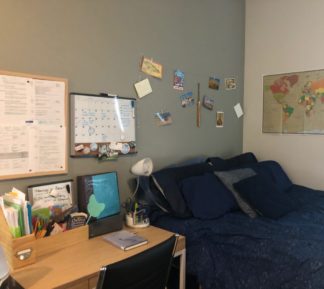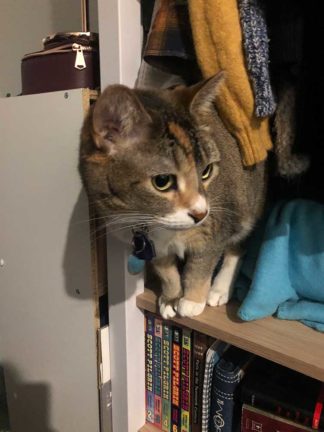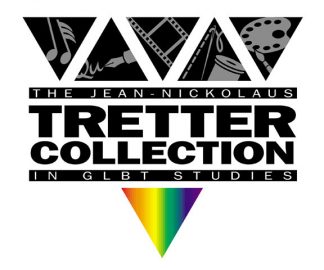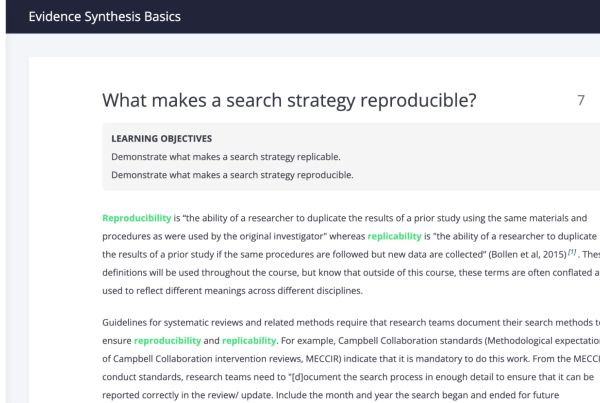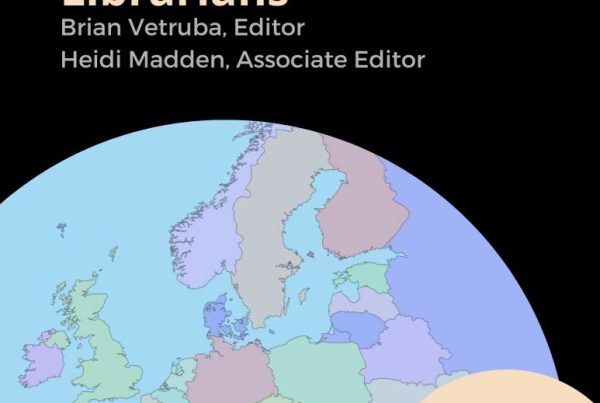By Jamaya Williams
As a Global Studies major with a regional focus in Europe, I gain knowledge and more tangible rewards in my job as Student Assistant for the Immigration History Research Center Archives (IHRCA) in Archives & Special Collections (ASC) at Andersen Library.
In the two years I have worked at IHRCA, I’ve gained invaluable exposure to thousands of archival materials documenting the personal experiences of 20th-century European immigrants, refugees, and displaced persons before and after their arrival to America. My favorite moments at the IHRCA have been assisting and speaking with visiting researchers from abroad, who often bring with them fascinating stories about their topic of research — as well as delicious European chocolates.
Since spring break, however, I’ve had to learn how to do my job without this hands-on and face-to-face component. When the University first announced in mid-March that classes will continue through alternative instruction for the rest of the semester — in conjunction with the physical closure of all University Libraries buildings — there was a brief moment of joy. No more commuting from East Bank to West Bank or to downtown Minneapolis every day to go to class, work, and my internship! I could sleep for an extra hour and stay in my comfy clothes all day, snuggled up with my cat, Bonnie, while streaming ’90s sitcoms.
Making adjustments to work/life balance
After the initial euphoria of stay-at-home, however, I soon realized that there were some big adjustments that I had to make. The biggest change was learning how to balance working remotely and taking college courses online, all while living in an 800-square-foot apartment with two other roommates and a needy cat. While I appreciated the fact that my original daily schedule was not dramatically altered by the transition, it was definitely a struggle to keep the same level of motivation and fighting the lure of endlessly scrolling through social media or watching the latest COVID-19 updates on TV.
I had also realized that maintaining a clean desk was nearly impossible as my textbooks, notebooks, and laptop piled on top of each other — I had to extend desk space to my bed. Fortunately, despite the Libraries being closed to the public and nonessential staff, student workers like myself remain engaged by completing new projects for our ASC units.
For the past two months, I’ve been busy with inputting legacy PDF finding aids into ArchivesSpace, the Libraries’ online database of archival collection guides for ASC unit repositories. The goal of this project is to update older IHRCA collection guides, either by cleaning up the organization of the collection to make easier the search for a specific item (e.g., a box or folder) or by adding more detailed information about the historical sketch, arrangement, and scope of the collection.
Jamaya’s work helps researchers
At the moment, I’ve completed inputting about a dozen legacy PDF finding aids, such as the Polish Union of the United States of North America records (IHRC2151), the Torma-Silvola Family papers (IHRC2607), and, more recently, the Leonids Slaucitajs papers (IHRC2419). Each of these archival collection guides will provide curious researchers with first- and second-hand informational sources about prominent European immigrants, their personal lives, and the organizational communities that they had helped to form and had participated in.
I am writing this in early May. As spring semester comes to a close, some students may be looking for something to occupy their free time while we’re all still staying at home. After taking a week-long nap to fully decompress from the experience of the last three months, I’d recommend doing a cursory search through the ASC collecting area subjects in ArchivesSpace. There are subjects for all interests, from information technology to architecture to social reform movements.
If you happen to find something of interest, don’t stop there — many virtual services are still being provided by the Libraries and staff members, who are always eager to help. Best of luck, stay safe, and stay curious.



